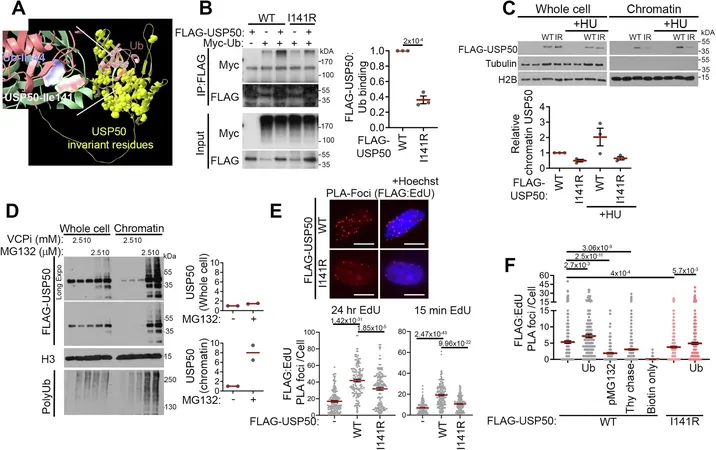
Revolutionary Protein Discovery Uncovers Secrets of DNA Replication and Health Risks!
2024-10-14
Author: Michael
Groundbreaking Discovery of USP50
A groundbreaking study has revealed that a specific protein, known as USP50, plays a crucial role in the delicate balance of DNA replication. This discovery could potentially unlock new insights into hereditary conditions and age-related diseases, including cancer.
Research Overview
Published in *Nature Communications*, the research team—led by Professor Jo Morris from the University of Birmingham—has been investigating the mechanisms that allow cells to manage DNA replication effectively. The study highlights how USP50 serves as a regulator, influencing the activity of essential enzymes called nucleases and helicases during the replication process. These enzymes are vital as they cut and unwind DNA strands, ensuring the copying machinery functions smoothly, especially when facing challenges or pauses.
Role of USP50 in DNA Replication
The findings indicate that USP50 not only aids in the regular progression of DNA replication but also plays a pivotal role during critical moments when DNA strands must be restarted. Furthermore, it contributes to maintaining telomeres, the protective structures at the ends of chromosomes that are essential for cellular longevity.
Expert Insights
Professor Morris stated, “Our research focuses on how cells utilize specific enzymes to govern DNA replication’s normal regulation. With various enzymes, cells must be strategic about which ones to deploy for replication to occur accurately. Our identification of USP50 as a key player in this regulation is a major advancement.”
Implications for Health
The ramifications of this discovery extend beyond the lab; Professor Morris warned that disruptions in the function of USP50 could be linked to hereditary gene changes that spur premature aging and increase cancer risk. “This finding opens the door to understanding how these genetic variants may influence the aging process and cancer development,” she emphasized.
Unexpected Findings
The study also unveiled intriguing findings regarding replication failures in the absence of USP50. Without this protein, cells attempted to engage a mishmash of nucleases and helicases, resulting in replication errors—an unexpected twist that underscores the precision with which cells coordinate their DNA-processing toolkit.
Collaborative Efforts
Co-author Professor Simon Reed, Co-Director of the Division of Cancer and Genetics at Cardiff University, reflected on the significance of the research, stating, "Collaborating on this paper has been a privilege, as we explore the crucial role of USP50 in maintaining genome stability. This not only enhances our understanding of cellular mechanics but also has the potential to influence future therapeutic strategies."
Looking Ahead
The research community is buzzing with excitement as this discovery may lead to breakthroughs in medical science aimed at combating genetic disorders and enhancing our understanding of the aging process. Keep an eye on the advancements following this significant study—you won’t want to miss what comes next in the fight against DNA-related diseases!









 Brasil (PT)
Brasil (PT)
 Canada (EN)
Canada (EN)
 Chile (ES)
Chile (ES)
 España (ES)
España (ES)
 France (FR)
France (FR)
 Hong Kong (EN)
Hong Kong (EN)
 Italia (IT)
Italia (IT)
 日本 (JA)
日本 (JA)
 Magyarország (HU)
Magyarország (HU)
 Norge (NO)
Norge (NO)
 Polska (PL)
Polska (PL)
 Schweiz (DE)
Schweiz (DE)
 Singapore (EN)
Singapore (EN)
 Sverige (SV)
Sverige (SV)
 Suomi (FI)
Suomi (FI)
 Türkiye (TR)
Türkiye (TR)